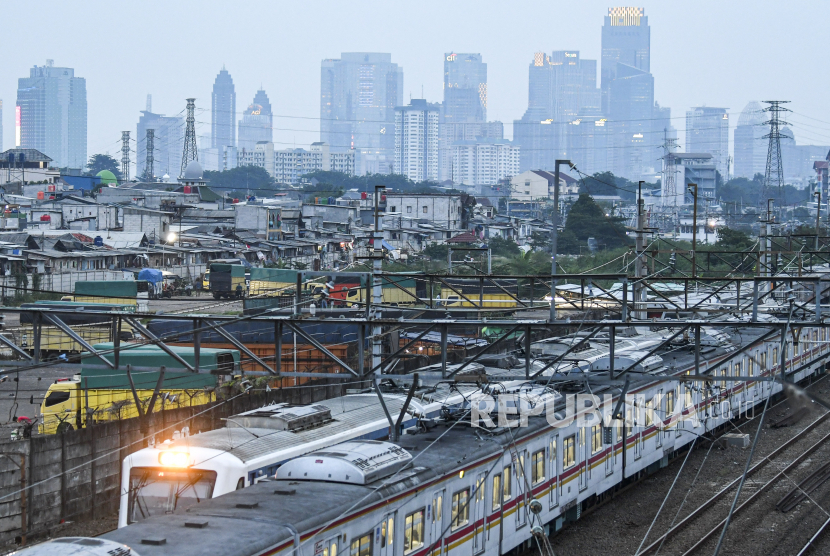REPUBLIKA.CO.ID, JAKARTA -- Indonesia considers to lower interest rates immediately to increase and drive national economic activities. The government said this an important step to be realized.
The Indonesia's Financial System Stability Committee (KSSK) is reviewing policies that could push down bank lending rates. This will be discussed in the KSSK meeting this month.
Finance Minister Sri Mulyani said that Bank Indonesia together with the Financial Services Authority (OJK) led a study on determining bank credit rates or lending rates. OJK also said that banks have reported the basics of setting loan interest rates.
"We are indeed in this discussion between BI, OJK, and the Deposit Insurance Corporation (LPS) to further examine the so-called formation process for determining the lending rate of each bank," she said during a virtual press conference on the Granting of Motor Vehicle and Housing Incentives, Monday, (March, 1st).
According to her, each bank set a different lending rate and this policy depends on the health of banks, bank balance sheets, cost of funds until these factors form the lending rate. "So that no generalization can be made of this policy," he said.
Nevertheless, she emphasized that the KSSK which consists of the Ministry of Finance, BI, OJK, and LPS wants to see the transmission of the reference interest rate run smoothly.
Coordinating Minister for the Economy Airlangga Hartarto added that the government would continue to communicate the issue of interest rates. "Because one of the things requested by banks is for the reduction in the BI rate and lending rate to be transmitted to consumers," he said.
Currently the spread of credit interest rates and the benchmark interest rate from Bank Indonesia are still wide. "Although, it is a single digit, but it is still above 9.75 percent," Airlangga said.
The Board of Governors Meeting (RDG) of Bank Indonesia on 17-18 February 2021 decided to lower the BI 7-day Reverse Repo Rate (BI7DRR) to 3.5 percent. However, although Bank Indonesia has consistently lowered interest rates, the implementation of these cuts in banks has been slow.
Bank credit interest rates are still exorbitant in the spotlight of Bank Indonesia.
BI data shows that from the existing banking group, it turns out that the highest prime lending rate (SBDK) is in state-owned banks at 10.79%. Then followed by BPD 9.80%, and national private commercial banks 9.67%.
Then the lowest prime lending rate is foreign bank branch offices at 6.17%. In terms of types of credit, the prime lending rate for micro credit was 13.75%, interest for non-mortgage consumption loans was 10.85%, consumer mortgage loans were 9.70%, retail loans were 9.68%, and corporate loans were recorded at 9.18%.



